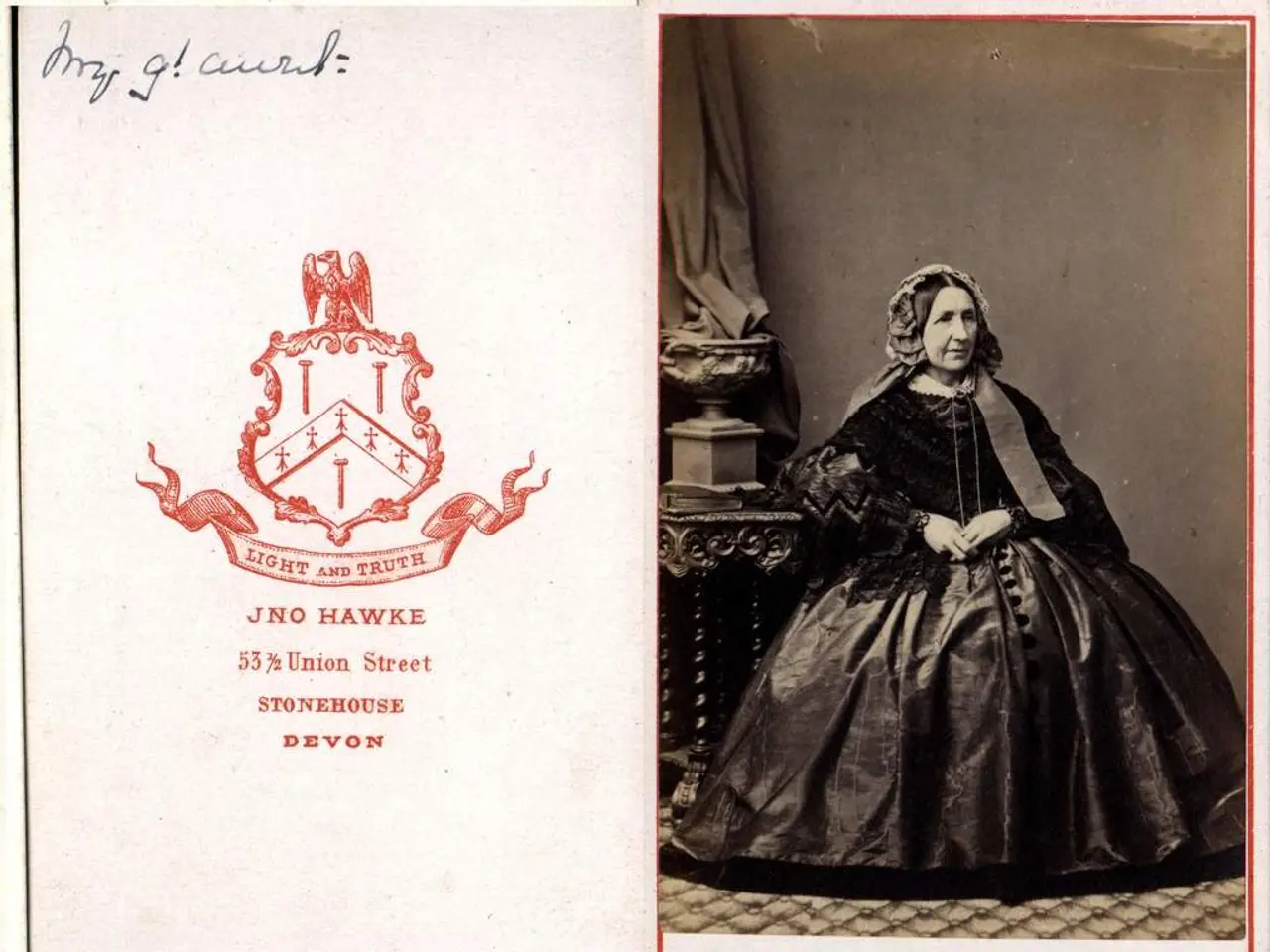Remarriage of Widows may result in the termination of Widow's Pension: Overcoming Financial Uncertainties - Remarriage of widows results in the forfeiture of their widow's pension benefits - grappling with feasible alternatives.
In Germany, the German Pension Insurance (DRV) provides survivor's pensions to widows and widowers. One such pension is the widow's pension, which is a crucial source of financial support for many. Here are some essential points to consider when navigating the rules and regulations surrounding widow's pensions in Germany.
Firstly, the amount of the widow's pension is primarily based on the pension the deceased spouse was receiving or would have been entitled to. It does not usually depend on whether the deceased was the last or penultimate spouse, but rather on the pension entitlement of the deceased spouse with whom you were most recently married or in a registered partnership.
If you remarry or enter a registered life partnership, you generally lose the right to receive the widow's pension. However, if this new partnership ends in divorce or death, and you are at least 45 years old at the time of the termination, you may regain the right to receive the widow's pension under certain conditions. For instance, if the new partnership ends due to the death of your partner, you may be eligible to receive the widow's pension based on the pension entitlement of your late spouse.
It's important to note that lump sums are not typically associated with widow's pensions in Germany. However, in some cases, pension payments might be converted into a lump sum under specific conditions, but this is not a standard rule for widow's pensions.
The German Pension Insurance distinguishes between a large and a small widow's pension. The large widow's pension amounts to 55% of the deceased's pension, while the small widow's pension is paid if the widow is younger than 47, not disabled, not raising a child of the deceased, and receives 25% of the deceased's pension.
It's crucial to remember that if a marriage of convenience is suspected, the widow's pension may not be paid. In general, for a marriage to be recognised for pension purposes, it must be a legal marriage, and the couple must have been married for a certain period.
Starting from July 2025, the exemption limit for earnings while receiving a widow's pension will increase from €1,038 to €1,077 per month. This change allows widows to earn a bit more income without affecting their pension.
If one partner was born before January 2, 1962, and married before 2002, the large widow's pension may amount to 60%. A marriage of less than a year may be assumed as a "marriage of convenience" by the pension insurance.
Recipients of a survivor's pension are obliged to inform the German Pension Insurance (DRV) of their remarriage. With remarriage, survivors lose their extra pension. If the income exceeds the current tax-free allowance of 1.076,86 euros, 40% of the excess amount is deducted from the survivor's pension.
If the new spouse dies, a widow's pension can be paid again. The pension insurance calculates the difference between the widow's pension from the new husband and the penultimate spouse, and adds it to the new widow's pension.
In all other cases, the large widow's pension is paid, which amounts to 55% of the deceased's pension. The Pension Office pays a lump sum to those who remarry, equivalent to 24 months of the widow's pension. All rules apply equally to registered life partnerships.
Understanding the rules and regulations surrounding widow's pensions in Germany can be complex, but this guide provides a helpful starting point for those navigating this important financial support system.
The amount of the widow's pension in Germany is primarily based on the pension the deceased spouse was receiving or would have been entitled to, which falls under the umbrella of personal finance and financial support. If a widow remarries or enters a registered life partnership, she generally loses the right to receive the widow's pension, but may regain the right under specific conditions, such as the end of the new partnership due to divorce or death, and if she is at least 45 years old at the time of the termination.




